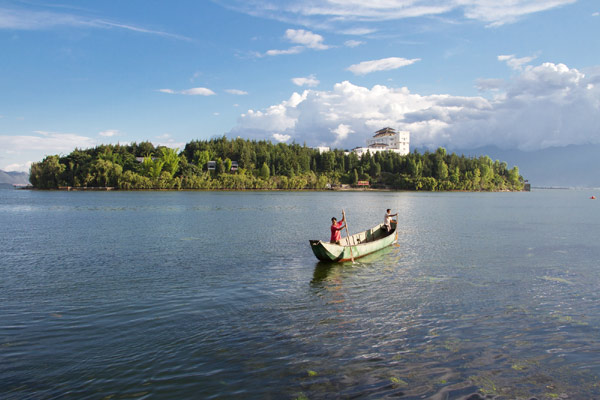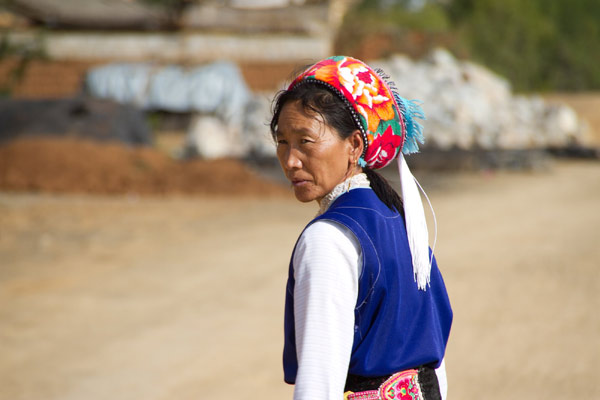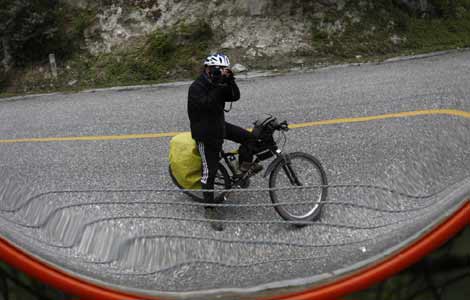Picture perfect
Updated: 2011-10-04 09:32
By D J Clark (China Daily)
|
|||||||||
 |
|
The Erhai Lake is the source of livelihood for local fishermen in Dali, Yunnan province. [Photo by D J Clark / For China Daily] |
Photographer Wang Jingchun is D J Clark's guide to the picturesque city of Dali in Yunnan province.
Flying into Dali, Yunnan province, on a bright summer morning was a magical experience. The plane banked around Erhai Lake as the sun picked out the small city perched on its banks.
After picking up my bag I left the airport and was met by Wang Jingchun, one of the country's best-known photographers.
I first came to know Wang's work in 2003 while browsing the vast humanism exhibition at Guangdong Art Museum in Guangzhou. He was one of the youngest contributors at the time to an exhibition that included many of China's best documentary photographers, past and present.
Although still working in Guangzhou as visual director of the Southern Metropolitan newspaper, Wang had bought an apartment in Dali, where he spends much of his time now.
"This is where my heart is," he told me as we drove into the city. "It's where I want my children to grow up."
I had asked Wang to show me his Dali, not the usual view of this popular Yunnan tourist stopover.
 |
|
A local woman clad in traditional attire of the Bai ethnic group. [Photo by D J Clark / For China Daily] |
We started with the long drive into the city, stopping occasionally for pictures of the lake, of boats on the water and strange modern architecture I found myself obsessing about.
We walked through the old city streets, past tour guides holding stringless tennis racquets followed by crowds of tourists and onto the film museum to get a brief introduction to the history of Chinese cinema.
Lunch was in a small back street courtyard before Wang explained the afternoon plan. "To see the real Dali we need to go to the other side of the lake," he told me.
We started with a drive to the base of Cangshan Mountain from where Wang could show me the afternoon's route. He pointed to a small peninsula on the far side of the lake that was where we intended to eat our next meal.
Shaped like a human ear (er in Chinese means ear and hai means sea), it is the seventh biggest freshwater lake in China.
At 1,973 m above sea level it covers more than 250 sq km. Getting to the other side was not going to be as easy as it looked.
The road around the lake starts well with a modern paved road but slowly disintegrates until you are crawling along a dirt track.
"They will make this a good road soon," Wang assured me, but for now I was enjoying the adventure.
 |
"Stop!" I kept shouting every time I saw fishermen mending their nets or children playing in the water and I jumped out to take pictures. Wang was more considered with his picture taking, checking the smaller details I often overlooked.
After about four hours on the road we reached the peninsula and dropped down to the quayside to find a restaurant. Wang had a favorite spot through a maze of alleys to a small eatery on the side of the lake. He ordered and while we waited for the food he told me stories of the Nanzhao and Dali Kingdoms that both made the city their capital in the Tang and Song dynasties (AD 618-1279).
As we returned to the city, the sun set over the lake as fishermen took off in their small boats at dusk.
"Look right," Wang shouted as I was about to doze off. A small boy with yellow paddles was walking by the car and I took the picture as Wang drove.
As the light faded and the fishermen melted into darkness I put down my camera and reflected on an inspirational day in what must surely be one of China's most beautiful cities.










